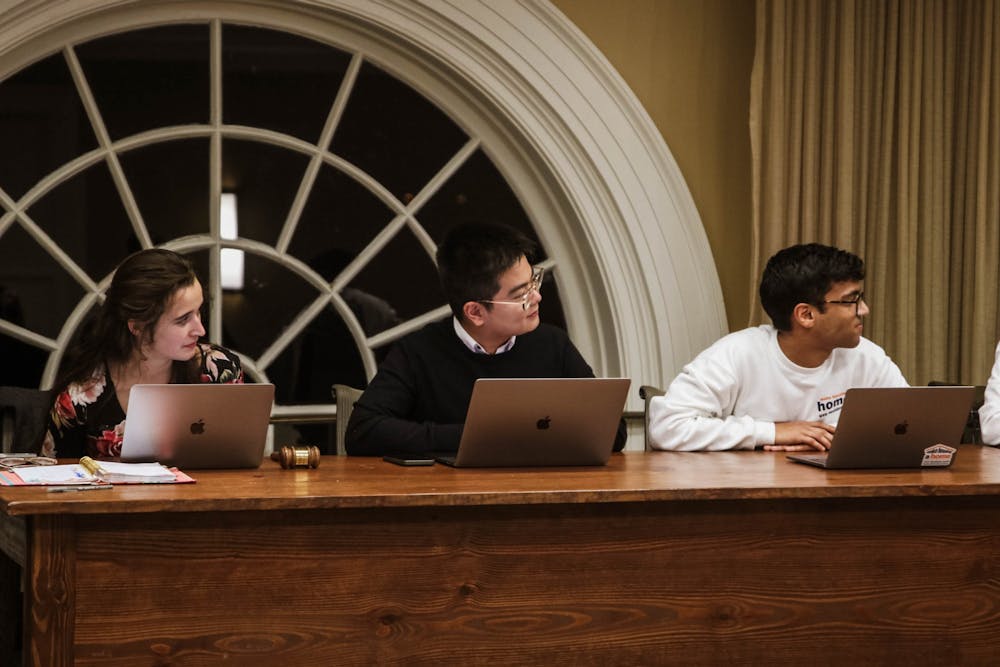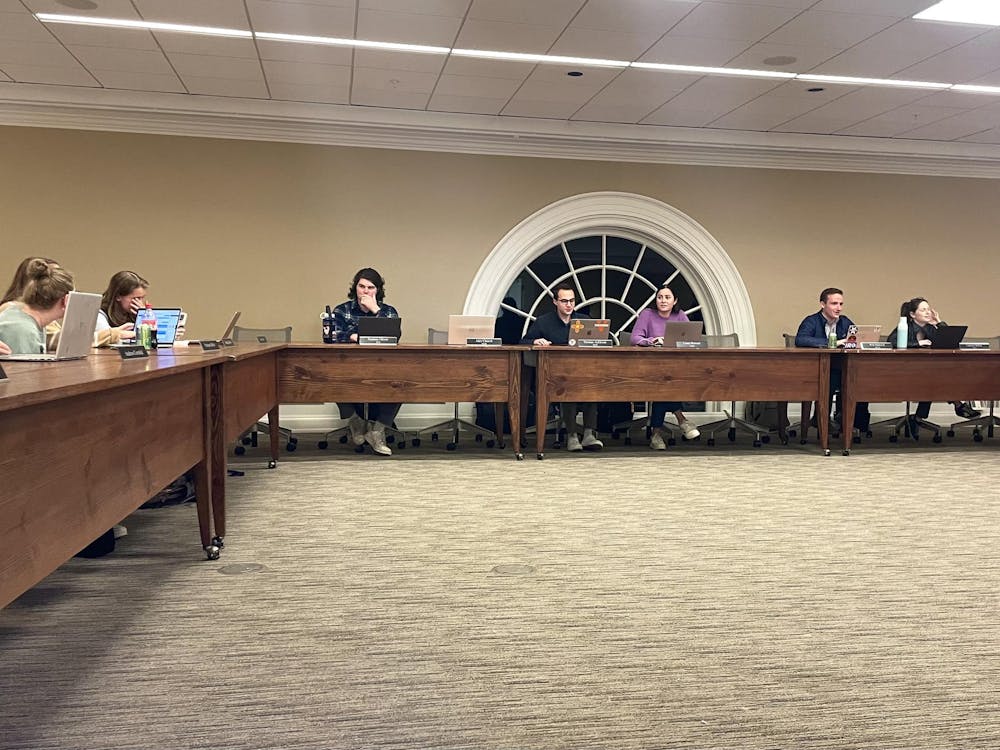The Honor Committee has postponed the eight remaining meetings of its Constitutional Convention to January. During its meeting Sunday, the group also voted to pass two new bylaws. The meeting met quorum with 16 members present, meaning the Committee could vote on constitutional matters and bylaws.
The Convention was announced in September and began Nov. 2. It aims to draft a multi-sanction system ahead of student body elections this spring through conversations with 30 different delegates representing CIOs across the University and Honor Committee representatives. Outside of the group’s first meeting, the convention is closed to the public.
In addition to rescheduling the Convention, the Committee also approved two new bylaws proposed by Hamza Aziz, vice-chair for investigations and third-year College student. The first new bylaw would allow for case investigations to continue over non-breaks — these are breaks that are not designated school holidays. This means that case investigations will continue to pause over holiday breaks, but will not be paused on breaks like summer break.
Aziz said that this amendment would help students work through their Honor cases — which can often last for months at a time — quicker and more effectively, and students have even asked this request of Aziz in the past.
“I do think it is in the best interest,” Aziz said. “They have asked me to continue case processing over summer.”
The bylaw passed unanimously with all 15 members present voting in favor.
Aziz’s second bylaw proposed that the interviews relevant to Honor investigations should be completed within a seven-day period. Honor cases are often prolonged by issues with scheduling, which can sometimes extend cases to last months.
Aziz hopes to be able to cut down case processing times significantly by implementing this bylaw.
“Ideally, we’re wrapping up in about one month,” Aziz said. “We’re working towards that goal of more efficient investigations.”
Second-year Law student Rep. Daniel Elliott proposed a slight change to the bylaw. Elliott was concerned with a section that dictates that if any party fails to cooperate with the investigation, that the investigation would continue without the testimony of that party.
Elliott also voiced concern that this section also included the party of the accused student. If the accused student chose not to cooperate and therefore have their testimony excluded, Elliott believed their right to due process may possibly be obstructed.
“[The section] gets closer to the line of what looks like a due process issue,” Elliott said. “I would be more comfortable if this language did not include the phrase ‘investigated students’.”
The Committee was able to work towards a solution that included Elliott’s changes. The new section now includes additional text. The additional text includes the accused student’s explicit right to independently submit an interview between the initial accusation and the pre-trial hearing.
The Committee voted on this new bylaw and it passed with 14 representatives in favor. The only opposed vote was fourth-year College student Rep. Sullivan McDowell, who mentioned he was still confused about the logistics of the bylaw prior to voting.
Towards the end of the meeting, the Committee moved into a discussion regarding its recent advocacy for students following the events of Nov. 13. After the University announced that no undergraduate students were expected to complete assignments or take exams prior to Thanksgiving break, Honor extended assistance to students who needed help attaining short-term extensions for exams and assignments.
Fourth-year College student Rep. Hannah Shapiro said that this outreach by the Committee was important because of the instability following November 13th.
“I think that this was such a vitally important thing that the Honor Committee decided to do,” Shapiro said. “I feel like the Honor Committee has spoken up for students.”
Lastly, the Committee voted on a co-sponsorship of $1,000 to $1,200 for Fashion For a Cause. The co-sponsorship passed unanimously.
The meeting was adjourned at the scheduled ending time of 8 p.m. This was the final Honor Committee meeting of the semester.





